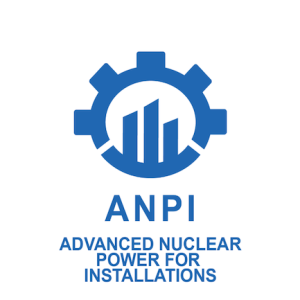 US-based fission technology company Oklo is to merge with AltC. Oklo said in a statement it believed roughly 40% of the Fortune 500 companies are committed to an emissions-free future, with some $2 trillion expected for power generation alone. "Oklo is pursuing two complementary tracks to address this demand: providing reliable, commercial-scale energy to customers; and selling used nuclear fuel recycling services to the US market," the company said.
US-based fission technology company Oklo is to merge with AltC. Oklo said in a statement it believed roughly 40% of the Fortune 500 companies are committed to an emissions-free future, with some $2 trillion expected for power generation alone. "Oklo is pursuing two complementary tracks to address this demand: providing reliable, commercial-scale energy to customers; and selling used nuclear fuel recycling services to the US market," the company said.
“Our long-term goal is to build a wide range of advanced fission power plants, including small and large designs and designs that are economically competitive," said Jacob DeWitte, a co-founder and CEO at Oklo.
Oklo is developing the Aurora microreactor, which uses heat pipes to transport heat from the reactor core to a supercritical carbon dioxide power conversion system to generate electricity. It uses metallic high-assay low-enriched uranium, (HALEU) fuel. Oklo says the reactor builds on the Experimental Breeder Reactor-II (EBR-II) and space reactor legacy. EBR-II features a hexagonal fuel element with a sealed heat pipe and a passive air-cooling system. Oklo initially marketed a 1.5 MWe microreactor version of the Aurora, but has now expanded its capacity offerings from 15 MWe to 100 MWe.
Oklo received a site permit in December 2019 from the US Department of Energy to build its first Aurora facility at Idaho National Laboratory (INL). In March 2020, Oklo submitted to the US Nuclear Regulatory Commission (NRC) a combined licence application to build and operate the Aurora microreactor at INL and the application was accepted for review. However, in January 2022, NRC denied the application, citing the company’s failure to provide sufficient information on several crucial topics regarding the Aurora design. Oklo’s application contained “significant information gaps” in its description of Aurora’s potential accidents as well as its classification of safety systems and components, NRC said. Although this prevented further review, NRC said it would re-engage with Oklo if the company submitted a revised application, which it did in September 2022.
“We are thrilled to announce that Oklo intends to go public through a business combination with AltC Acquisition Corp,” the company said. “Since our founding, we’ve been on a journey to revolutionise the energy landscape by providing affordable, reliable, clean energy at scale. Today’s news is a significant step towards achieving our vision of reviving and modernising fast fission nuclear technology.” The transaction, which has been approved by the Boards of Directors of Oklo and AltC, is expected to close in late 2023 or early 2024.
Oklo is backed by leading technology and decarbonisation investors, including Sam Altman, who has served as Chairman of Oklo since 2015. Altman is also the co-founder and CEO of AltC.
The transaction is expected to provide up to $500m of gross capital with net proceeds going to accelerate Oklo’s business plan and fund the first deployment of the Aurora powerhouse.
Altman welcomed the new partnership “that provides the opportunity for AltC’s shareholders to become investors in Oklo and fund the first deployment of the Aurora powerhouse” He added: “I think the two most important inputs to a great future are abundant intelligence and abundant energy. I have long been interested in the potential that nuclear energy offers to provide clean, reliable, and affordable energy at great scale.”
He noted that Oklo has a site and fuel secured for its first plant, which it expects to be online in 2026 or 2027, and also has “strong and growing customer interest in future deployments”. The Company and its partners have been selected by the DOE for four cost-share awards to potentially commercialise advanced recycling technologies to produce fuel from used fuel. Oklo is planning to construct a commercial-scale fuel recycling facility in the US by the early 2030s.
Altman is known for his work with artificial intelligence after Microsoft invested billions of dollars in OpenAI and the company’s ChatGPT chatbot. Altman told CNBC that his vision for a better future depends on two technologies developing in parallel: AI and energy. “My whole view of the world is the future can be radically better and the two things that we really need for that are to lower the cost of energy and lower the cost of intelligence.”
In addition to supporting nuclear fission through Oklo, Altman has also invested $375m into Helion, which is seeking to commercialise nuclear fusion. Altman says fusion, if it can be commercialised as Helion envisions, and Oklo, with its smaller, cheaper nuclear reactors, can co-exist. The need for clean, cheap energy “is so vast” that having multiple source of reliable, clean nuclear energy is a good thing. Also, because Oklo reactors are going to be much smaller than Helion power plants, they will likely serve different kinds of customers. “The world is just so energy limited, and it’s such an energy deficit, we need all of it,” Altman told CNBC.
Image: Oklo’s Aurora powerhouse (courtesy of Oklo)






